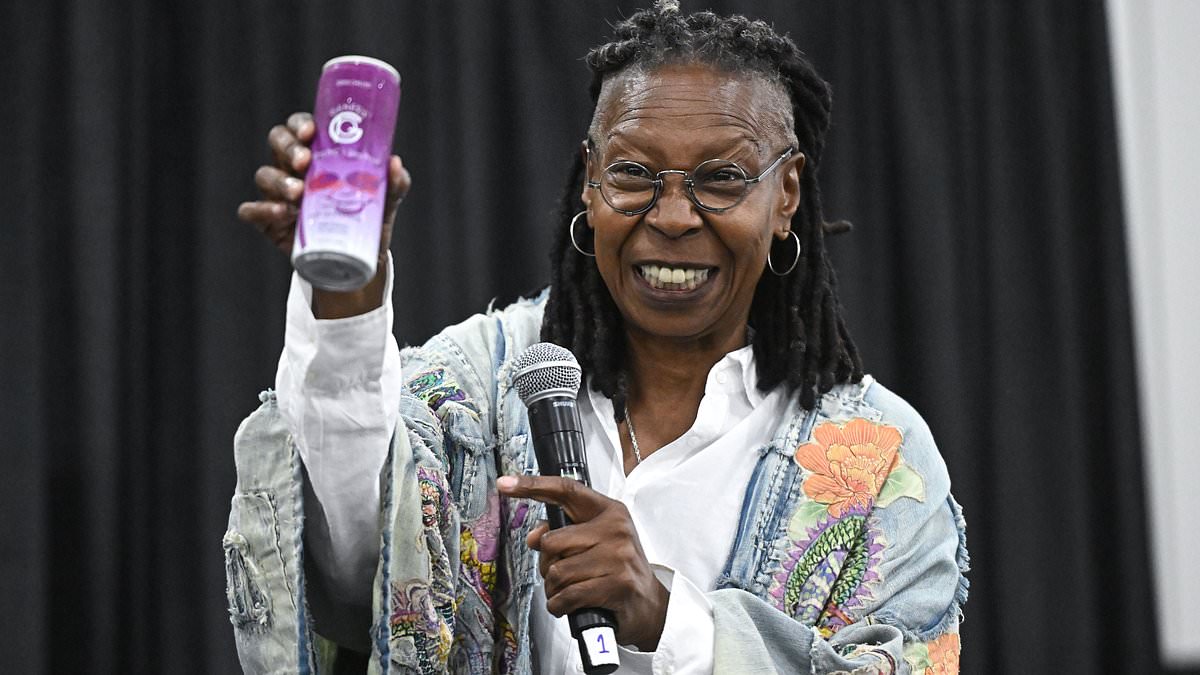Copyright dailymail

The dream of legal weed was supposed to mint millionaires. Instead, it's creating bankruptcies. Across the US, cannabis companies are collapsing under impossible taxes, plunging prices and brutal red tape. Even celebrities once hyped by the 'green rush' - from Jay-Z to Whoopi Goldberg - have seen their plans go up in smoke. 'The US cannabis industry is on its last breath,' Beau Whitney, founder of Whitney Economics and former cannabis CEO, told the Daily Mail. 'We're witnessing an extinction-level event for small operators.' According to his data, only 27 percent of US cannabis firms are profitable, 40 percent are just breaking even, and a third are losing money outright. Across other sectors, nearly two-thirds of businesses make money. 'The system wasn't built to succeed - it was built to control,' Whitney said. 'State legislatures and regulators have set the industry up for failure.' Thirty-nine states and Washington, DC, now allow medical cannabis, and about half have legalized adult use. Ohio joined the party in 2024, and Nebraska approved medical marijuana the same year. The legal industry still rakes in $30 to $35 billion a year and supports roughly 420,000 jobs. Demand is solid, driven by Millennials and Gen Zers buying edibles and THC drinks. But rules differ wildly by state. Some restrict dispensaries to big cities, and others ban them entirely. That patchwork keeps the black market alive - with up to 75 percent of sales still off the books. Whitney said California produces up to 22 million pounds of cannabis a year, but can legally sell only a quarter of it. 'The rest goes out the back door,' he said. The oversupply has crashed legal weed prices everywhere. In Massachusetts, an ounce dropped from $394 in 2020 to $145 today. In Michigan, it went from $419 to $84. In California, wholesale prices sank from over $1,000 a pound to about $250. Whitney told the Daily Mail that as dispensaries slash prices to survive, farmers subsequently quit - he called it 'a race to the bottom.' Because cannabis is federally illegal, Section 280E of the tax code bars normal deductions. Many firms pay effective tax rates above 60 percent. 'Taxes are killing this industry - plain and simple,' Whitney said. He estimates the total tax burden will hit $2.3 billion this year and could soar past $5 billion by 2030. California, the nation's largest cannabis market, is also its biggest cautionary tale. A $400 million shortfall in unpaid taxes has regulators threatening to revoke licenses from delinquent firms - many of which are minority-owned. 'Revoking licenses from businesses that can't afford to pay? That's madness,' Whitney said. State officials disagree. 'If you don't collect taxes, you're not running a legal business,' a California Department of Cannabis Control spokesperson told the LA Times in July. In September, Governor Gavin Newsom rolled back the cannabis excise tax from 19 percent to 15 percent until 2028 to help legal operators stay afloat. Because banks fear federal penalties, most refuse to work with cannabis companies. That means cash-only operations, or sky-high loans from private lenders. Whitney estimates $3.8 billion in unpaid invoices are floating through the system, and calls it 'a full-blown credit crisis.' Analysts at New Frontier Data agree that the lack of financing is the industry's weakest link. Congress has repeatedly failed to pass the SAFE Banking Act, which would give legal weed access to credit and payment systems. Both the Biden and Trump administrations have backed plans to reclassify marijuana as a less dangerous drug - from Schedule I (alongside heroin) to Schedule III (alongside ketamine). If finalized, the move could slash taxes and open doors for research, funding and interstate trade. Analysts at Cowen & Co say it could save businesses billions by neutralizing Section 280E. But Whitney warns it won't be enough, claiming that 'until cannabis is descheduled entirely, the industry will remain handcuffed.' When legalization took off, investors - and celebrities - rushed in. From 2018 to 2020, billions poured into cannabis stocks and startups. Then came the crash. Share prices tanked by 70 to 90 percent, venture capital dried up and the famous faces behind high-end weed brands were left reeling. Jay-Z's Monogram brand launched with style - and $575 million in reserve funding - in 2020. But within months, it was bleeding cash. The problem? Regular weed at luxury prices. Consumers balked at paying $50 for a pre-rolled joint. 'Jay-Z stepped away as the company went up in a mess,' one source told TMZ. Monogram did not respond to the Daily Mail's request for comment. Whoopi's cannabis dreams also fizzled. Her first venture, aimed at menstrual pain relief, folded in 2020. Her next project - a dispensary in New Jersey - has yet to open, losing $5,000 a month in rent and remaining tangled in lawsuits. The business, Whoopfam, did not respond to the Daily Mail's request for comment. Mike Tyson's cannabis company, Tyson Ranch, closed in 2021 due to bad management and a poor understanding of the market, according to a Tyson associate. The ex-athlete bounced back with his new line, Tyson 2.0. Folk-rocker Melissa Etheridge's Etheridge Farms fell victim to California's shifting rules as well as partner disputes. Even ex-House Speaker John Boehner's Acreage Holdings faced fines and tumbling shares. Not everyone crashed, though. Rappers Snoop Dogg and Wiz Khalifa run weed brands that are among the best-selling in America. Then there are lifestyle gurus Martha Stewart and Gwyneth Paltrow, who found success with low-dose 'wellness' products. For Whitney, the difference between the success stories and their counterparts is clear: 'If you're not involved [in the business] day-to-day, your name won't save you.' California's once-golden market is now choking under its own rules. Local bans keep dispensaries out of dozens of counties, and legal shops account for less than half of total sales. 'The state is disincentivizing legal participation while rewarding the underground,' Whitney told the Daily Mail. 'Every time a legal business fails, the illicit market gets stronger. California is the canary in the coal mine - and it's gasping for air.' Officials are scrambling for fixes. A new law allows 'cannabis lounges' to serve food and host live music, hoping to lure customers from the black market. Other states, including Illinois and New York, are boosting grants for small and social-equity operators. Public-health experts are not celebrating legalization's struggles - but they're not mourning, either. Dr Nora Volkow, director of the National Institute on Drug Abuse, has previously warned that cheaper, more available cannabis could mean more addiction and mental-health fallout. Opponents point to studies linking heavy use to psychosis, depression and traffic fatalities. Despite the carnage, Whitney sees a way forward. 'Lower taxes and greater access would grow the legal market, not shrink it,' he said. His vision - dubbed 'Cannabis 3.0' - is a leaner, smarter, federally supported industry. He argued that allowing cannabis in grocery stores, pharmacies and wellness centers would boost sales and shrink the illicit trade. 'Reform isn't about helping stoners,' he insisted. 'It's about saving small businesses.' The industry's long-promised boom has turned into a bust. Yet, even amid layoffs, lawsuits and shuttered grow houses, a few survivors are still hanging on, waiting for the political tide to turn. 'There's a lot of fallout coming,' Whitney said. 'But those that survive will thrive. We're finally at the real starting line - if we can make it there.



